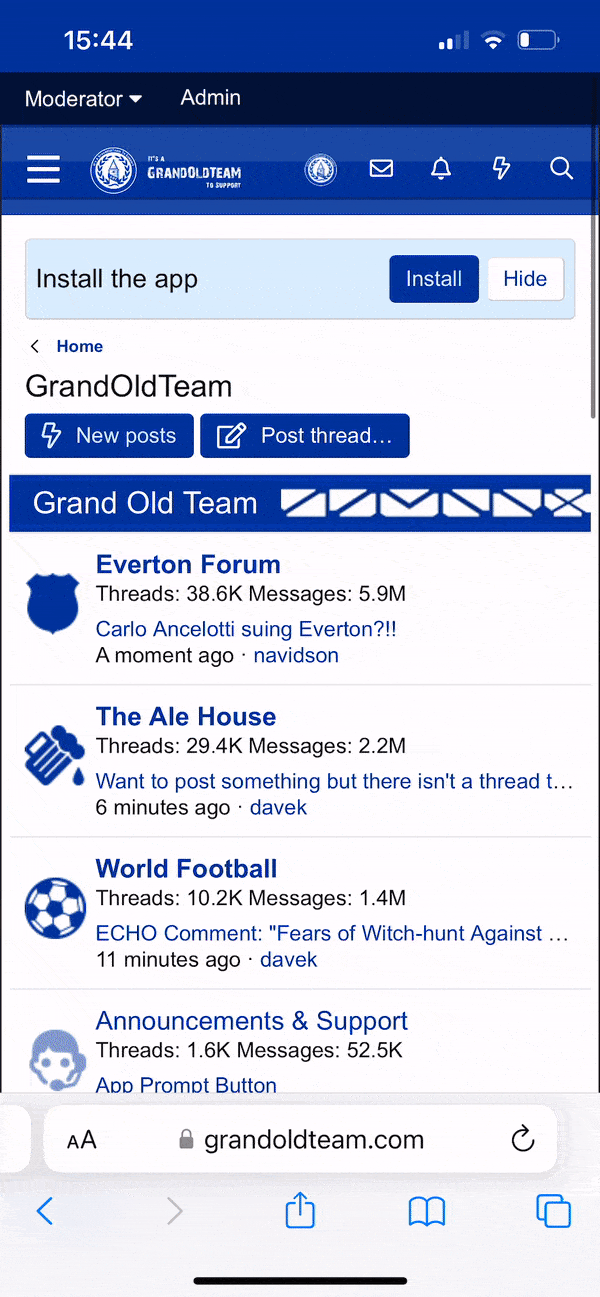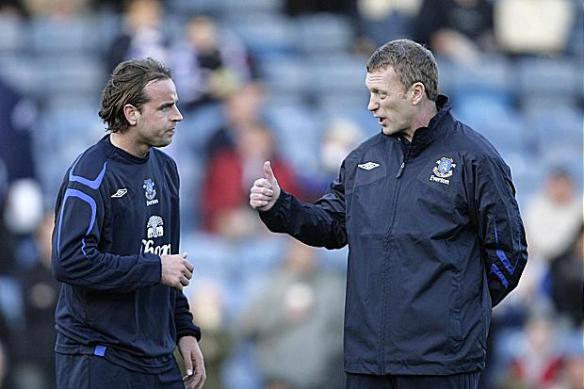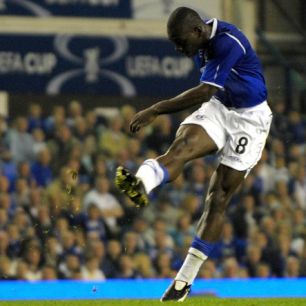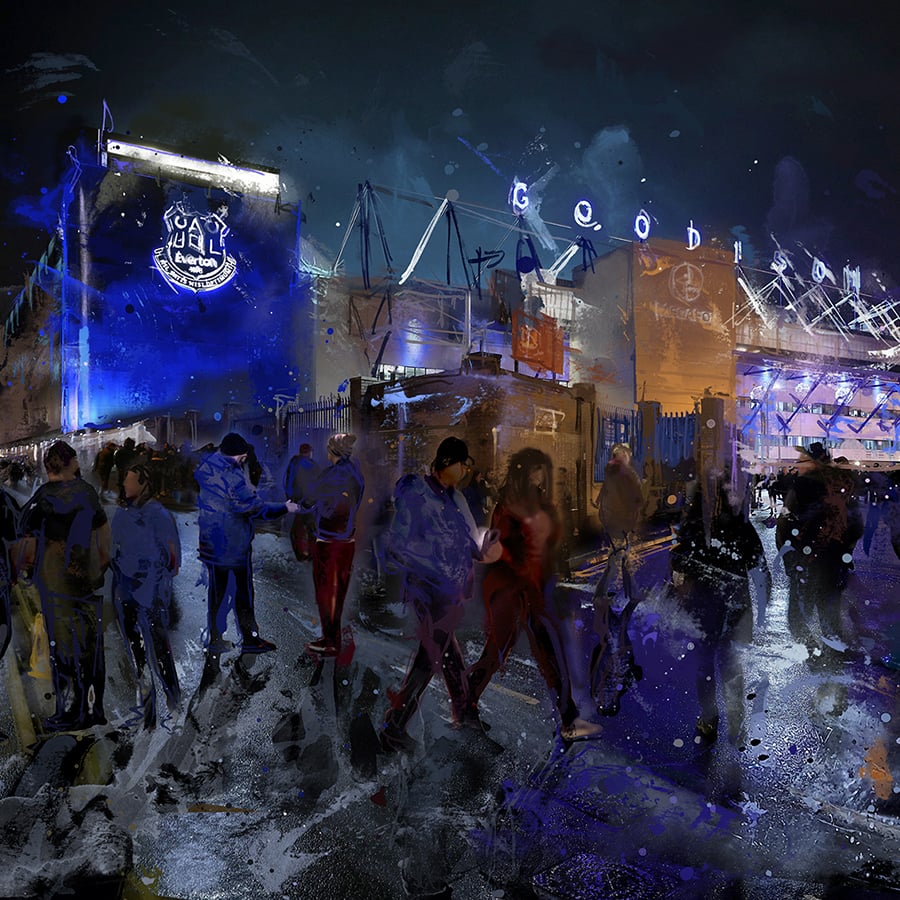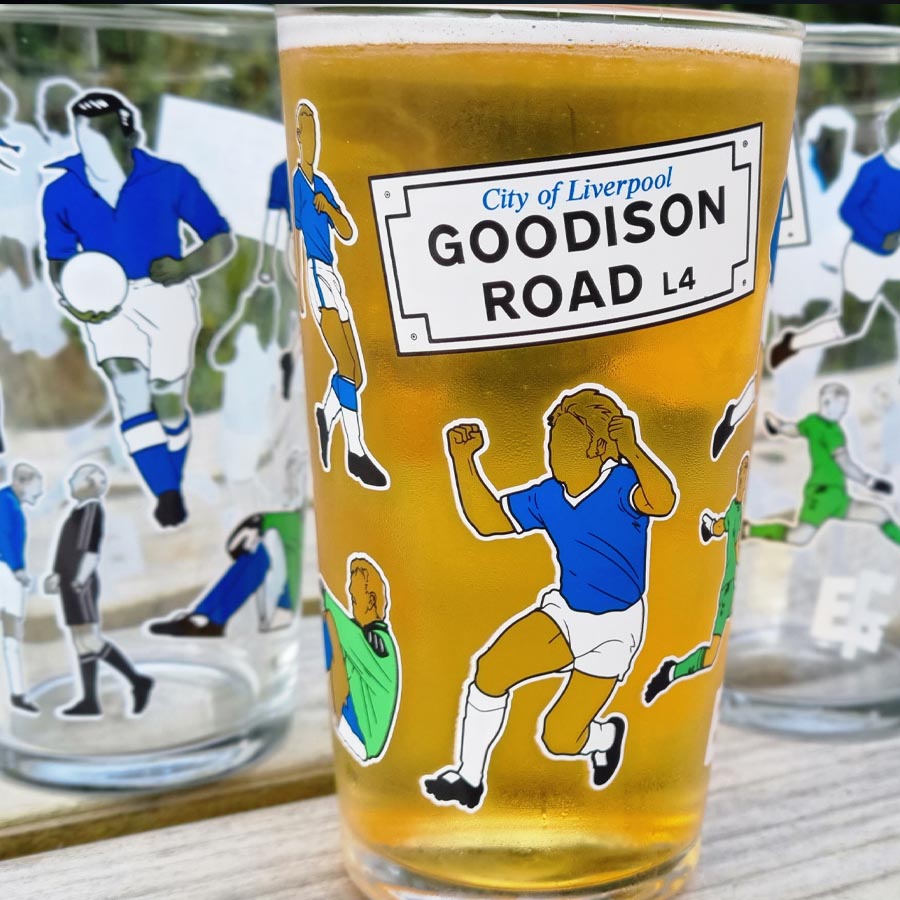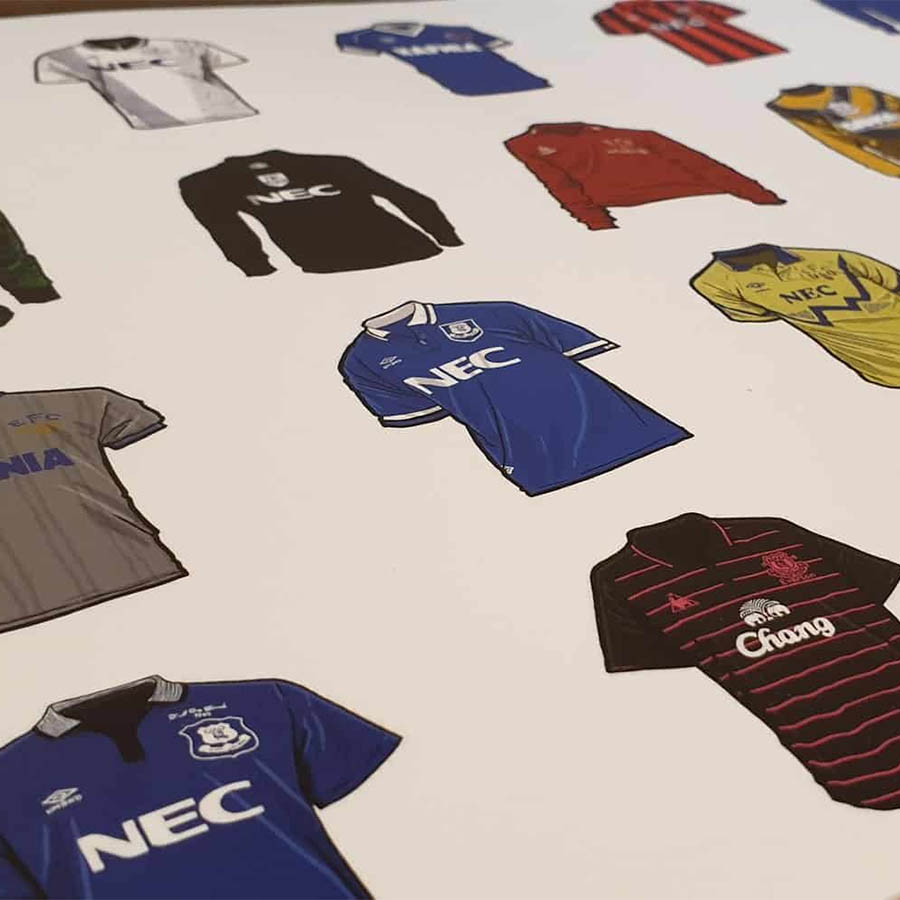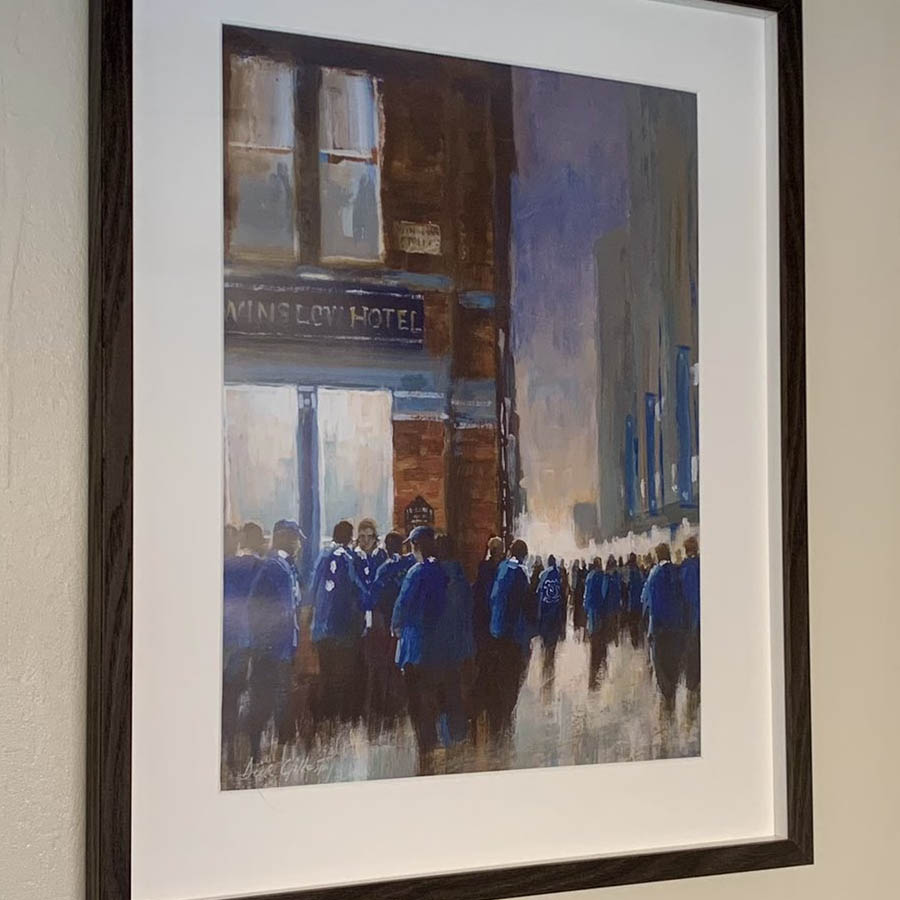A thread to catch up on former players when they left the club and what are they up to now!

Daniel Owefin Amokachi, the Nigerian living football legend, was born in Kaduna on 30th December 1972 to Mr. Ikwulechin Amokachi who hails from Otukpa in Ogbadibo Local Government Area. Amokachi aka "The Bull" came to national limelight in 1988 when he broke into the first team at Ranchers Bees FC of Kaduna in the second half of the 1988 Nigeria Division One League Football season.
The exploits of this new exciting talent, called Amokachi, continued into the 1989 football season and soon caught the attention of the national team handlers. While Nigerians were expecting the then 16 year old Amokachi to be selected for the Golden Eaglets side preparing for 1989 U-17 World Cup in Scotland, national team coach Clemens Westerhof had other ideas and Amokachi was invited to the senior team B side which went on to win the ECOWAS Cup in Bauchi in December 1989.
Due to the pay dispute that existed in early 1990 between foreign based players and the Nigerian Football Association (NFA), Clemens Westerhof decided to take the bulk of his ECOWAS Cup winning side to the African Cup of Nations in Algiers in March 1990. The then 17 year old Amokachi made his debut in the premier African football competition and played a key part in Nigeria placing second at the competition, having lost the finals 1-0 to host Algeria.
Amokachi's performance in Algiers meant it was only a matter of time before he left the domestic scene and in July 1990 he signed for Belgian side Club Brugge KV. His game developed in Belgium and he would go on to score 35 goals in 81 appearances before leaving in August 1994. During his time in Brugge, he won the "Best African Player in Belgium" award for two (2) seasons and went into the history books by scoring the first goal in the new UEFA Champions League with his goal against CSKA Moscow in a 1-0 victory on 25th November 1992.
Just as his club career was growing in leaps and bounds, so also was his national team stature. Amokachi was an integral part of the successful Super Eagles side of the 90s, helping Nigeria to third place at the 1992 African Cup of Nations in Senegal, securing Nigeria's qualification for the USA 94 World Cup in October 1993 and winning the 1994 African Cup of Nations in Tunisia in April 1994.
At the 1994 World Cup in USA, hard-working Amokachi, whose power play style of football had earned him the nickname the "The Bull", announced himself on the world stage. His goals against Bulgaria and Greece in the group stages, helped Nigeria progress to the second round where the Super Eagles narrowly lost to Italy 2-1 after extra time.
After the World Cup, it was no surprise when Amokachi sealed a £3m move from Club Brugge to English Premiership side Everton. Amokachi, known to the Evanton fans as "Amo Taxi" due to his bustling style of play, won the prestigious FA Cup in 1995. He also earned a place in Evanton's folklore when he came on as a substitute (against the manager's order) in the FA Cup semi-final against Tottenham Hotspurs and scored 2 goals in a 4-1 victory. Following a change of Managers at Everton, Amokachi found playing time limited and not one to sit around, he left Evanton in June 1996. In his 2 seasons with Evanton, he scored 10 goals in 43 appearances.
In July 1996, Amokachi signed for Turkish side, Besiktas before joining up with the Nigerian U-23 side (known as Dream Team) as one of the 3 overage players, along with Emmanuel Amunike and Uche Okechukwu, at the 1996 Atlanta Olympic Games. Amokachi played all 6 matches as Nigeria went on to win Africa's first Olympic gold in football with a 3-2 victory against Argentina in the final match with Amokachi scoring the second goal.
Just before the 1998 World Cup in France, Amokachi sustained a knee injury that would ultimately end his football career. Despite his knee injury, Amokachi made the Nigerian team to the 1998 World Cup but could only play 67 minutes in the 1-0 victory over Bulgaria. His national team career saw him score 14 goals in 42 appearances.
After the 1998 FIFA World Cup, Amokachi continued to struggle with knee problems and had to leave Besiktas in 1999. During his time in Turkey, Besiktas won the Chancellor Cup (1997), TSYD Cup (1997), Turkish President Cup (1998) and Turkish Cup (1998) scoring 19 goals in 97 appearances.
Planned moves to 1860 Munich in Germany and Tranmere Rovers in England fell through due to failed medical tests. He had stints with US Créteil-Lusitanos in France (2000/2001), Colorado Rapids in the US (2002) and Emirate Club in UAE (2002/2003) before finally retiring from professional football.
In 2005, Amokachi came out of retirement as a Player / Manager with Nasarawa United in Nigerian Premier League and successfully led Nasarawa United to second place in league in 2006. He briefly coached Enyimba in 2008 before joining the national team set-up. Daniel Amokachi is currently one of the assistants to the national team coach, Stephen Keshi.
Daniel Owefin Amokachi, the Nigerian living football legend, was born in Kaduna on 30th December 1972 to Mr. Ikwulechin Amokachi who hails from Otukpa in Ogbadibo Local Government Area. Amokachi aka "The Bull" came to national limelight in 1988 when he broke into the first team at Ranchers Bees FC of Kaduna in the second half of the 1988 Nigeria Division One League Football season.
The exploits of this new exciting talent, called Amokachi, continued into the 1989 football season and soon caught the attention of the national team handlers. While Nigerians were expecting the then 16 year old Amokachi to be selected for the Golden Eaglets side preparing for 1989 U-17 World Cup in Scotland, national team coach Clemens Westerhof had other ideas and Amokachi was invited to the senior team B side which went on to win the ECOWAS Cup in Bauchi in December 1989.
Due to the pay dispute that existed in early 1990 between foreign based players and the Nigerian Football Association (NFA), Clemens Westerhof decided to take the bulk of his ECOWAS Cup winning side to the African Cup of Nations in Algiers in March 1990. The then 17 year old Amokachi made his debut in the premier African football competition and played a key part in Nigeria placing second at the competition, having lost the finals 1-0 to host Algeria.
Amokachi's performance in Algiers meant it was only a matter of time before he left the domestic scene and in July 1990 he signed for Belgian side Club Brugge KV. His game developed in Belgium and he would go on to score 35 goals in 81 appearances before leaving in August 1994. During his time in Brugge, he won the "Best African Player in Belgium" award for two (2) seasons and went into the history books by scoring the first goal in the new UEFA Champions League with his goal against CSKA Moscow in a 1-0 victory on 25th November 1992.
Just as his club career was growing in leaps and bounds, so also was his national team stature. Amokachi was an integral part of the successful Super Eagles side of the 90s, helping Nigeria to third place at the 1992 African Cup of Nations in Senegal, securing Nigeria's qualification for the USA 94 World Cup in October 1993 and winning the 1994 African Cup of Nations in Tunisia in April 1994.
At the 1994 World Cup in USA, hard-working Amokachi, whose power play style of football had earned him the nickname the "The Bull", announced himself on the world stage. His goals against Bulgaria and Greece in the group stages, helped Nigeria progress to the second round where the Super Eagles narrowly lost to Italy 2-1 after extra time.
After the World Cup, it was no surprise when Amokachi sealed a £3m move from Club Brugge to English Premiership side Everton. Amokachi, known to the Evanton fans as "Amo Taxi" due to his bustling style of play, won the prestigious FA Cup in 1995. He also earned a place in Evanton's folklore when he came on as a substitute (against the manager's order) in the FA Cup semi-final against Tottenham Hotspurs and scored 2 goals in a 4-1 victory. Following a change of Managers at Everton, Amokachi found playing time limited and not one to sit around, he left Evanton in June 1996. In his 2 seasons with Evanton, he scored 10 goals in 43 appearances.
In July 1996, Amokachi signed for Turkish side, Besiktas before joining up with the Nigerian U-23 side (known as Dream Team) as one of the 3 overage players, along with Emmanuel Amunike and Uche Okechukwu, at the 1996 Atlanta Olympic Games. Amokachi played all 6 matches as Nigeria went on to win Africa's first Olympic gold in football with a 3-2 victory against Argentina in the final match with Amokachi scoring the second goal.
Just before the 1998 World Cup in France, Amokachi sustained a knee injury that would ultimately end his football career. Despite his knee injury, Amokachi made the Nigerian team to the 1998 World Cup but could only play 67 minutes in the 1-0 victory over Bulgaria. His national team career saw him score 14 goals in 42 appearances.
After the 1998 FIFA World Cup, Amokachi continued to struggle with knee problems and had to leave Besiktas in 1999. During his time in Turkey, Besiktas won the Chancellor Cup (1997), TSYD Cup (1997), Turkish President Cup (1998) and Turkish Cup (1998) scoring 19 goals in 97 appearances.
Planned moves to 1860 Munich in Germany and Tranmere Rovers in England fell through due to failed medical tests. He had stints with US Créteil-Lusitanos in France (2000/2001), Colorado Rapids in the US (2002) and Emirate Club in UAE (2002/2003) before finally retiring from professional football.
In 2005, Amokachi came out of retirement as a Player / Manager with Nasarawa United in Nigerian Premier League and successfully led Nasarawa United to second place in league in 2006. He briefly coached Enyimba in 2008 before joining the national team set-up. Daniel Amokachi is currently one of the assistants to the national team coach, Stephen Keshi.

